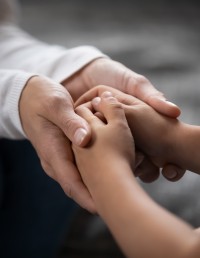Katie A. v. Bonta Settlement Ensures CA Foster Youth Improved Access to Mental Health Care
A settlement agreement has been reached in Katie A v. Bonta, ensuring that thousands of foster youth in California have improved access to mental health care. The settlement, executed on August 26, provides a framework for significant improvements in the process by which mental health care is provided to foster children, including better coordination among child-serving agencies and providers, an individualized array of services focused on keeping children in their homes, and new Medi-Cal cost-sharing by the federal government.
There are approximately 60,000 children in foster care in California and an even greater number of children served by the child welfare system in their own homes. The court’s order extends to children in both groups who have unmet mental health needs.
Judge A. Howard Matz is expected to preliminarily approve the settlement, under active negotiation for more than 18 months, at a Sept. 27 hearing. Katie A v. Bonta is a class action lawsuit against the State and Los Angeles County that was filed on July 18, 2002. The suit challenged the longstanding practice of confining abused and neglected children with unmet mental health needs in hospitals and large group homes instead of providing services that would enable them to stay in their homes and communities. The case was based on alleged violations of Medicaid and the Americans with Disabilities Act. At issue was the state and county’s failure to provide wraparound and Therapeutic Foster Care¬—intensive home and community-based mental health services and supports—that are proven effective in allowing most children to remain safely at home or in a home-like setting. NCYL joined the case as co-counsel in 2003.
LA County entered into negotiations and settled in March of 2003. The settlement obligated the county to make comprehensive reforms, including offering family-based wraparound services to children with mental, emotional, and behavioral issues, with the goal of family reunification and reducing multiple and arbitrary placements. The settlement also mandated the immediate closure of the notorious MacLaren Children’s Center and the reallocation of its funding to home and community-based programs.
Meanwhile, the state of California fought against reform for six more years. Finally, after numerous motions and a trip to the 9th Circuit Court of Appeal, Federal District Court Judge Matz directed the parties to the negotiating table and appointed a Special Master to manage the process.
The agreement provides for:
- Establishing a shared management structure for the California Departments of Health Care Services, Social Services, and Mental Health to develop policies and programs consistent with a “core practice model” designed to provide child welfare and mental health services to foster children in a coordinated, comprehensive and community-based fashion. This core practice model includes values, goals and principles that promote working with families and care providers as a team. For children with intensive or complex needs, the core practice model also includes the delivery of services through a Child and Family Team.
- Developing a process to identify foster children with unmet mental health needs in order to link them to necessary services.
- Facilitating the provision of new intensive case management and home-based mental health services for children with more intensive mental health needs and facilitating the provision of Therapeutic Foster Care. These services are typically provided to children so that they can avoid being placed in hospitals, institutions or other group care facilities.
- Developing an intensive services manual and training curriculum to support the core practice model for use by counties and providers, establishing a team to collect data on service delivery and outcomes, and drafting and executing an implementation plan that addresses how intensive services will be brought to scale statewide.
NCYL is co-counsel on the case with the ACLU of Southern California; the Western Center on Law & Poverty; Protection and Advocacy, Inc.; the David L. Bazelon Center for Mental Health Law; and the National Health Law Program.





